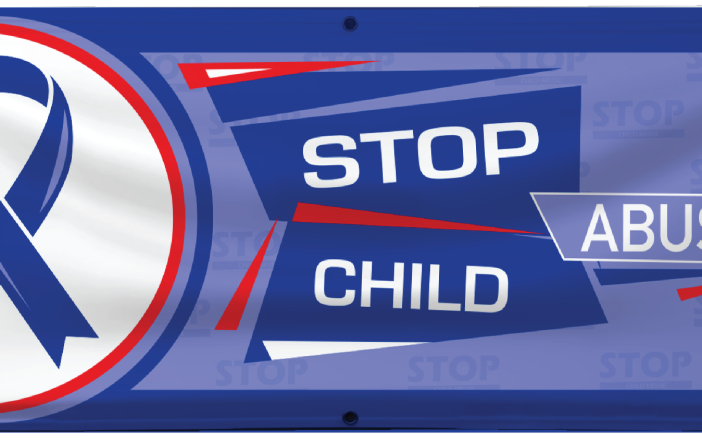Like
Like
Love
Haha
Wow
Sad
Angry
1
(ThyBlackMan.com) Child abuse allegations are among the most serious and emotionally charged legal matters, carrying significant consequences for both the accused and the alleged victim. In the face of such accusations, it is essential to recognize the importance of building a robust defense to protect the rights and interests of the accused. This blog explores the intricacies of defending against child abuse allegations and the strategies employed by criminal defense attorneys to ensure a fair and just legal process.
The Path to Mastery of Child Abuse Defense as a Criminal Defense Attorney
According to a leading law firm, becoming proficient in defending against child abuse allegations requires a comprehensive understanding of both the legal framework surrounding such cases and the psychological dynamics at play. Criminal defense attorneys specializing in this area undergo rigorous training and education to navigate the complexities of child abuse legal proceedings effectively. They must possess expertise in relevant laws, regulations, and legal precedents governing child abuse cases, as well as the ability to apply this knowledge strategically in defense of their clients.
Moreover, mastering child abuse defense entails a deep understanding of the psychological factors that may influence both the alleged perpetrator and the alleged victim. Attorneys must be sensitive to the emotional nuances of such cases and adept at conducting thorough investigations to uncover the truth amidst conflicting accounts and evidence. By combining legal acumen with empathy and insight, defense attorneys can provide effective representation for individuals facing child abuse allegations and ensure that their rights are protected throughout the legal process.
How Child Abuse Can Affect Psychology
Child abuse can have profound and long-lasting effects on the psychological well-being of both victims and perpetrators. For victims of abuse, the experience may lead to a range of emotional and psychological consequences, including trauma, anxiety, depression, and post-traumatic stress disorder (PTSD). These effects can persist into adulthood and impact various aspects of the victim’s life, including relationships, self-esteem, and overall mental health.
Similarly, individuals accused of child abuse may experience significant psychological distress as a result of the allegations and legal proceedings. The stigma associated with being labeled as an abuser, coupled with the fear of legal consequences and societal judgment, can exacerbate feelings of guilt, shame, and isolation. Moreover, navigating the complexities of the legal system and defending against serious criminal charges can take a toll on the mental health and well-being of the accused.
Official Statistics of Child Abuse
Official statistics on child abuse provide valuable insights into the prevalence and nature of these offenses, as well as the challenges associated with identifying and addressing them. According to data from organizations such as the National Children’s Alliance and the Centers for Disease Control and Prevention (CDC), millions of children are reported as victims of abuse and neglect each year in the United States alone. These reports encompass various forms of abuse, including physical, sexual, emotional, and neglectful behaviors.
Furthermore, official statistics highlight the disproportionate impact of child abuse on vulnerable populations, such as children from low-income households, minority communities, and those with disabilities. Addressing the systemic factors that contribute to child abuse requires a multifaceted approach, including increased awareness, prevention efforts, and access to support services for both victims and perpetrators. By understanding the scope and severity of the problem, policymakers, advocates, and legal professionals can work together to implement effective interventions and protect the well-being of children.
How Criminal Defense Can Help in Cases Like These Ones
In cases of child abuse allegations, criminal defense attorneys play a crucial role in safeguarding the rights and interests of the accused and ensuring a fair legal process. Defense attorneys employ various strategies to challenge the prosecution’s evidence, question witness testimony, and advocate for their clients’ innocence. This may involve conducting thorough investigations, gathering exculpatory evidence, and presenting compelling arguments in court.
Moreover, criminal defense attorneys work closely with experts in fields such as psychology, forensic science, and child development to strengthen their defense strategies and counter allegations of abuse. By leveraging expert testimony and scientific evidence, defense attorneys can challenge the validity of the prosecution’s case and raise reasonable doubt regarding their client’s guilt. Additionally, defense attorneys provide crucial support and guidance to their clients throughout the legal process, advocating on their behalf and ensuring that their rights are protected at every stage of the proceedings.
Conclusion
In conclusion, defending against child abuse allegations requires a meticulous and compassionate approach that acknowledges the complexities of these cases. Criminal defense attorneys specializing in child abuse defense must possess a deep understanding of both the legal and psychological dimensions of such cases, allowing them to provide effective representation for their clients. By building a strong defense rooted in thorough investigation, expert testimony, and strategic advocacy, defense attorneys can help individuals facing child abuse allegations navigate the legal process with confidence and pursue the best possible outcome for their cases. In doing so, they ensure that justice is served while upholding the principles of fairness, compassion, and due process.
Furthermore, by acknowledging the psychological toll that child abuse allegations can inflict on both victims and defendants, attorneys can provide invaluable support and guidance throughout the legal process. By upholding principles of justice, fairness, and due process, defense attorneys play a pivotal role in ensuring that the legal system functions equitably for all parties involved. As advocates for justice and defenders of individual rights, criminal defense attorneys stand as pillars of integrity, committed to upholding the rights and liberties of those accused of child abuse.
Staff Writer; Steve Jones



